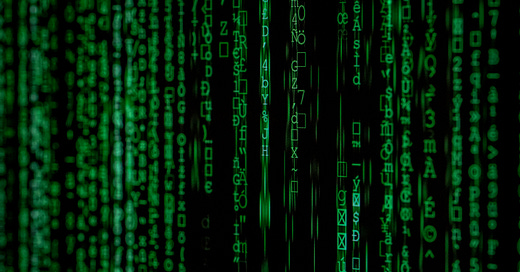In my last post, I wrote about archetypes and how they affect our lives without us really being aware of them, and about how I will be stepping into a new archetypal “father” role soon and what that means for me.
I’ve also been thinking about how algorithms affect us, and not just the fact that social media, search engines and now AI control much of what we see on the internet (that definitely affects us a lot, but it’s not my area of expertise).
The kind of algorithms I’ve been thinking about are mental. We all have internal algorithms that control our behavior. Lines of code that dictate what we do, want, and how we react to things. They can be contingent; if X then Y, such as “If I bang my knee, I will scream in pain or if I listen to this particular song, I will feel nostalgia.” They can be constant, such as “I always want chocolate, or always fear being alone.”
Biological necessities and evolutionary influences certainly have a major impact on what algorithms run in our heads, but so do culture, community, family and individual variance. Most people have algorithms that help them stay alive, and many (though not all) have algorithms that have them seeking money, power, sex, status, companionship, security, meaning, excitement, or pleasure in varying degrees and combinations.
Many algorithms are harmless and even beneficial, but others are harmful and dangerous. Addiction is an obvious algorithm run amok, and so are many other mental illnesses.
OCD is an algorithm that tells someone they must do something in a certain way or something terrible will happen. Eating disorders are algorithms that tell someone to eat too much or too little. Anxiety is an algorithm that makes everything feel threatening and overwhelming. Depression is an algorithm that makes everything meaningless.
I have identified several algorithms in myself that get in my way and wreak havoc on my wellbeing. One such algorithm is this: “My self-worth = the extent to which I am successful as a filmmaker.”
I have known that this algorithm is faulty, harmful and incorrect for a long time, but that doesn’t mean it’s easy to dislodge. Recognizing a harmful algorithm is necessary for being free of it, but it’s not sufficient.
But there are times in my life when I have been able to dislodge faulty algorithms. Either by starving them of energy or transforming them through some alchemical process that I don’t really understand, I was able to alter the source code of an addiction or obsession in ways that had lasting effects.
I have no formula for how to break a harmful or ineffective algorithm. If I did, I would be fully in control of my desires, fears and life. But I do know that it’s possible, and seeing an algorithm clearly is the first step to taking control of it. So maybe take five minutes to think about what algorithms are running in your system and which ones are hurting more than they’re helping.



